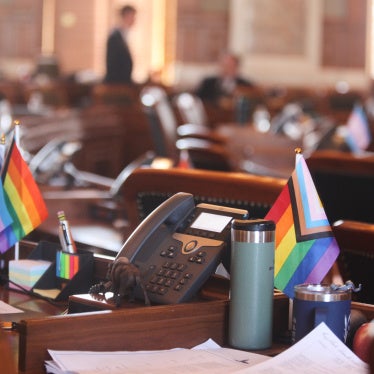In New York, a 16-year-old who's caught sneaking a free ride on the subway will automatically be charged in adult court and can be sentenced to time in an adult jail. In Florida, children as young as 14 can be charged as adults for a broad array of crimes, including nonviolent offenses like grand theft or felony vandalism. In fact, every single state in the US allows children to be tried as adults in at least some circumstances.
Given how widespread the practice is, most judges, prosecutors, and prison guards in the US would probably be shocked to learn that their government has ratified a treaty that includes a provision that children charged with crimes should be detained separately from adults and treated in a manner appropriate to their age. When the US adopted this treaty – the International Covenant on Civil and Political Rights – in 1992, it included a reservation maintaining the right to try and sentence children as adults in “exceptional circumstances.”
The US seems to have an expansive definition of “exceptional circumstances,” since an estimated 250,000 children in the US are prosecuted as adults every year, for crimes ranging from shoplifting to homicide.
US practice under the Covenant is under scrutiny this week in Geneva by the United Nations Human Rights Committee, a group of 18 independent experts tasked with monitoring how countries are complying with their obligations under the treaty. In its 2006 conclusions on the US, the Committee said it was “concerned by information that treatment of children as adults is not only applied in exceptional circumstances.” The US should get a jump on further criticism and announce that it will seek to withdraw its “exceptional circumstances” reservation.
Meanwhile, back in the US, after being charged and sometimes sentenced as adults, every day approximately 10,000 children are held in adult jails or prisons. Some are serving life without parole sentences, despite the recent US Supreme Court cases limiting the practice. They may be subject to solitary confinement, and often fall prey to rape and other forms of violence.
Children who have committed offenses should be held accountable, but the US can do so without resorting to widespread trials in adult court and incarceration in adult prisons.








